Your cart is currently empty!
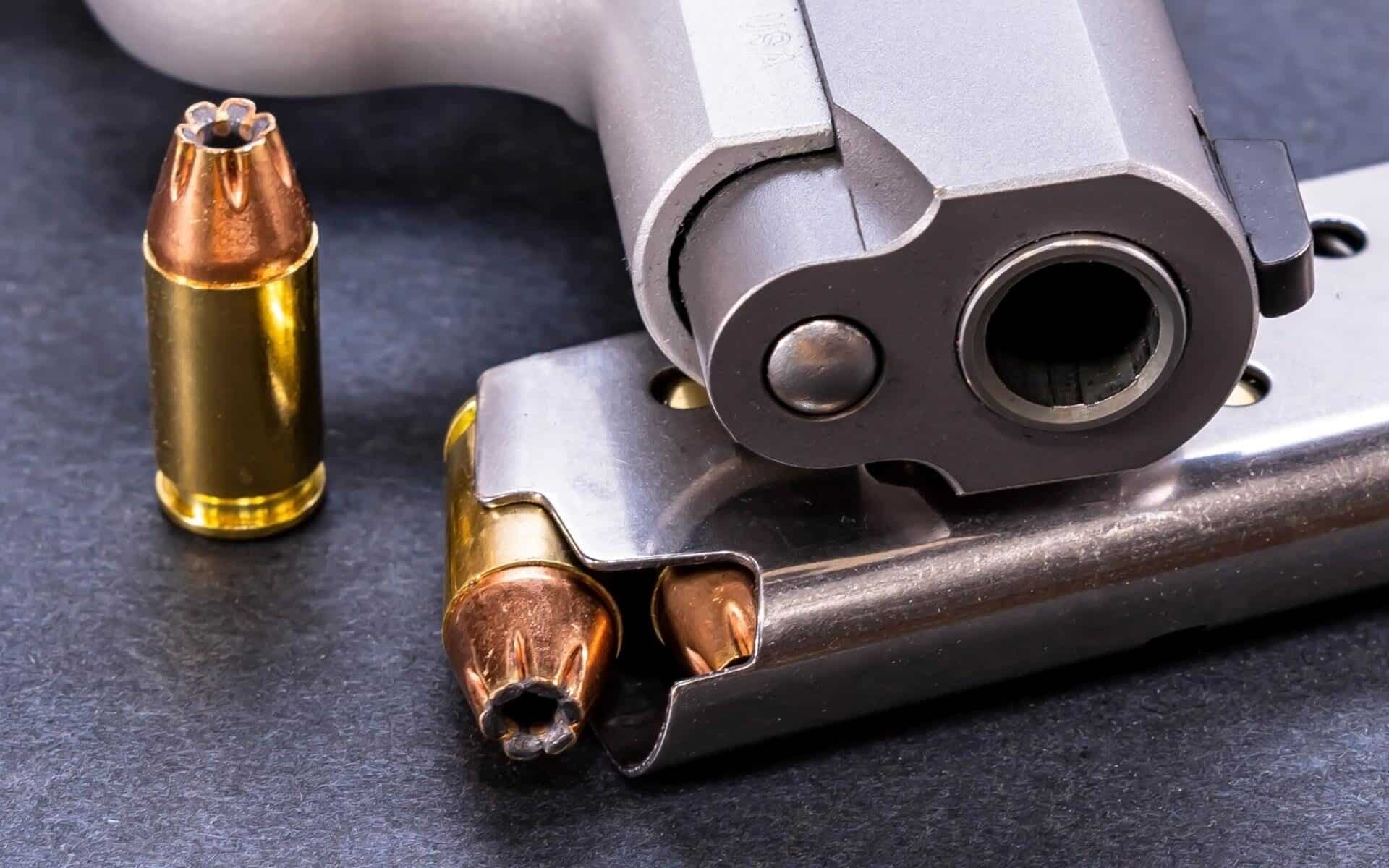
380 vs 9mm: Caliber Comparison
When it comes to selecting the right firearm, many factors come into consideration. One of the primary considerations that comes into play is the caliber of bullet your firearm will be chambered in. Understanding the differences, advantages, and disadvantages between similar rounds will be a deciding factor in which firearm you choose. Today, we are going to evaluate two of the most popular rounds among gun owners, the .380 ACP and the 9mm.
Whether you’re a seasoned marksman looking for precision bullets for your recreational shooting or a new shooter eager to find the ideal caliber for target practice, we’re here to guide you to the best choice.
.380 vs. 9mm: Overview
When it comes down to deciding between firearms, bullet caliber plays a critical role. It’s not simply about the size but the performance of the bullet, analyzed through aspects such as muzzle velocity, recoil, and effective range, to name a few.
BRIEF HISTORICAL BACKGROUND: .380 VS 9MM
The .380 ACP is a rimless, straight-walled pistol cartridge designed by the great firearms designer John Moses Browning. Similarly, the 9mm Parabellum was developed by German firearms designer Georg Luger and introduced in 1901 for the Luger semi-automatic pistol. Each of these calibers has unique characteristics rooted in their design and performance, which we will discuss in more detail in the following sections.
MAJOR DIFFERENCES: .380 VS 9MM
At first glance, it might not be easy to spot the differences between the two. In terms of recoil energy, the shorter .380 ACP is known for having less recoil, making it easier to manage and therefore quicker for follow-up shots. On the other hand, the 9mm, wielded by many law enforcement officers in the United States, compensates for its more substantial recoil with a higher velocity and longer-nosed bullet, which can lead to more severe wounds.
Keep in mind, the size of the gun is going to have the greatest effect on recoil. A larger gun chambered in 9mm – due to decreased backward velocity – is likely to have less felt recoil than a small pistol chambered in .380 ACP. That is to say, there are lots of factors that contribute to the overall shooting experience, which is why we recommend testing any firearm on the range before making a purchase decision.
EFFECTIVENESS FOR RECREATIONAL SHOOTING
The heart of the matter lies in the quality of recreational bullets. By choosing premium bullets, such as those we produce, you’re setting yourself up for optimal accuracy, consistency, and performance during target practice or competitive shooting. The right bullet choice leads to superior shot placement, ensuring you hit your mark each time.
As we delve deeper into the unique characteristics of the .380 ACP and 9mm, it’s important to look beyond just the calibers. Features like your firearm’s size, functionalities, magazine capacity, ease of use, and overall reliability also play a pivotal role in the firearm you select for your recreational needs.
Detailed Overview of .380 Caliber Bullets
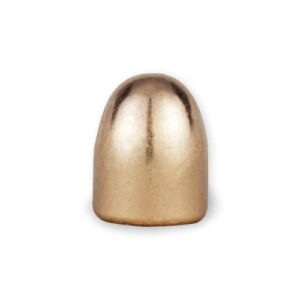
Diving deeper into our caliber comparison of .380 versus 9mm, let’s start by taking a comprehensive look at the .380 ACP. This caliber, also known as the 9mm Browning, 9mm Short, 9mm Kurtz, or simply .380, delivers a smaller diameter bullet at a lower velocity than many of its counterparts. Yet, it maintains considerable popularity, particularly among users who seek a weapon that is ideal for concealed carry.
USAGE OF .380 CALIBER BULLETS
The .380 ACP is famously used in firearms such as the automatic Colt pistol (ACP), with designs embraced by the Ruger LCP and the Walther PPK, among others. The .380 ACP fires a generally lighter recoil round, making it easier to control — a crucial factor to consider when time is of the essence in a self-defense situation. In turn, the prospect of faster, controlled follow-up shots increases immensely, making the .380 an effective player in the world of firearms.
Beyond the civilian demographic, the .380 ACP has been used as a backup gun by several law enforcement outfits. The core reason for this choice is its compact design, allowing the .380 caliber firearms to be conveniently carried, discreetly concealed, and quickly deployed if needed, all while providing reliable defense power.
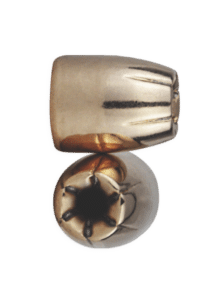
ARE .380 CALIBER BULLETS THE RIGHT CHOICE FOR YOU?
Commonly referred to as a “pocket pistol” due to their easily concealed size, the firearms chambered in .380 ACP are perfect for when traditional carrying options are not appropriate or possible. They slot seamlessly into a pocket, purse, or even an ankle holster, ensuring your firearm is never far from reach in case it is needed.
However, it could be argued that the .380 ACP caliber lags behind others in terms of size and, consequently, the stopping power it offers. But with current advancements in recreational bullets like those offered by Berry’s Bullets, this argument is increasingly obsolete. The energy conveyed by a .380 round has dramatically improved, which, when combined with good shot placement, results in significant stopping power.
In conclusion, the .380 ACP is a strong contender for those seeking less recoil, ease in concealed carry, and an effective overall round. Berry’s Bullets offers superior-plated .380 caliber bullets designed to tackle your recreational shooting needs, using decades of expertise to ensure optimal performance in every round we produce. As America’s trusted bullet manufacturers, your satisfaction remains at the core of our mission.
Detailed Overview of 9mm Bullets
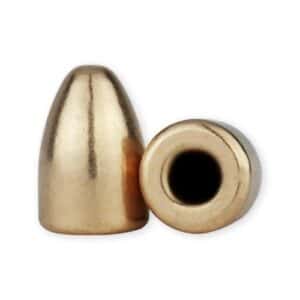
Moving on to the 9mm, officially entitled the 9mm Parabellum, more commonly known as the 9mm Luger, it occupies a higher standing among both firearm enthusiasts and law enforcement agencies. This caliber is renowned for delivering a higher velocity given it is a longer and heavier bullet than the .380 ACP.
STRENGTHS OF 9MM BULLETS
Unlike the .380 ACP, the 9mm has notably more recoil energy. Remember, this disadvantage can be offset by a larger firearm, and it means that the 9mm delivers a bigger punch – a factor that might be considered essential to some shooters. Due to their popularity, firearms chambered in 9mm also tend to come with larger magazine capacities than those chambered in .380 ACP. This means the 9mm allows for more follow-up shots without needing to reload.
The blend of efficient muzzle velocity and larger caliber has led 9mm firearms to be a popular choice among law enforcement officers and individuals for personal protection across the United States. Among the variety of firearms leveraging this caliber are iconic models such as Smith & Wesson’s M&P series and SIG Sauer’s P series.
For recreational shooting, range accuracy and consistency are vital elements, and the 9mm stands out in this aspect. The 9mm’s larger bullet and greater velocity grant it an advantage in range precision over the .380 ACP. Paired with superior plated bullets, it guarantees enhanced shot placement and provides a satisfying shooting experience.
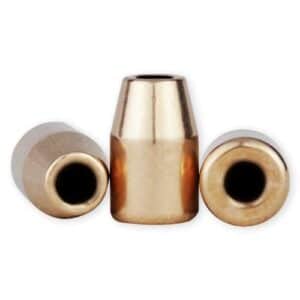
ARE 9MM BULLETS THE RIGHT CHOICE FOR YOU?
Considering the question of whether to choose the 9mm ultimately tracks back to personal comfort, adaptability, and the critical factor of what feels right in your hands. While the 9mm typically has more recoil than the .380 ACP, many shooters can handle it effectively, making it an incredibly viable option for any shooter.
At Berry’s Bullets, we produce reliable, superior-plated 9mm bullets, manufactured with the belief that every round should provide unparalleled performance. Our 9mm bullets are crafted using the deepest level of expertise, giving users the needed confidence in their shooting capabilities. We are here to assure you of unmatched quality and unfaltering service.
Choosing Between .380 and 9mm
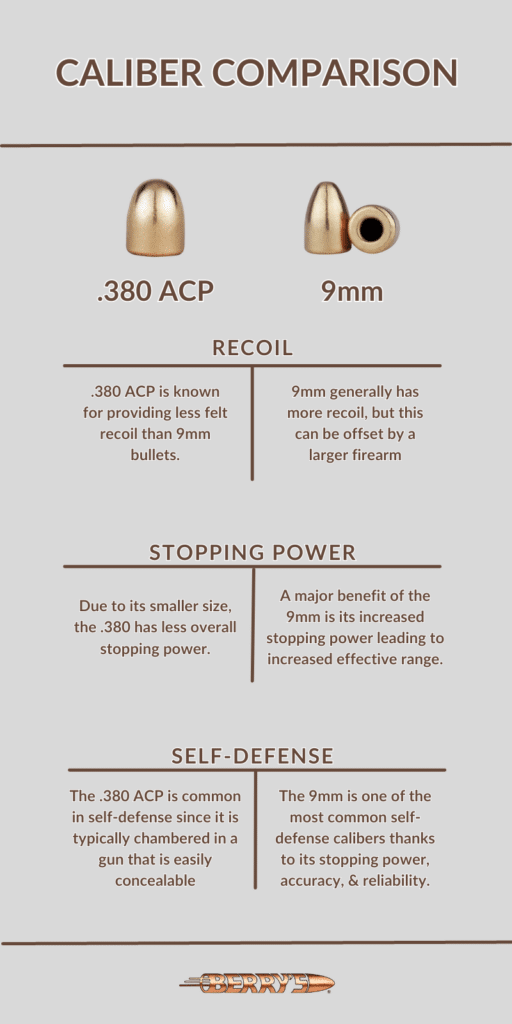
As we come down to the wire in our comparison of the .380 ACP and 9mm, we clearly see that each caliber holds its unique profile based on size, velocity, recoil, and the potential firearms they operate within. So, how do you choose between the two?
.380 VS 9MM: KEY DIFFERENTIATORS
The .380 ACP offers the advantage of generally lighter recoil, making it a comfortable selection for those with a smaller build or who prefer a weapon that’s easier to handle. It serves as an optimal concealed carry, providing a practical round for self-defense. Its penetration depth, while not as substantial as the 9mm, has seen major improvements, especially when armed with high-quality bullets.
The 9mm, on the other hand, offers increased stopping power due to its larger bullet diameter and higher velocity. The more substantial recoil may be a setback for a few, but for many, the 9mm represents a trusted and reliable round. Moreover, the broad support of the 9mm in the law enforcement community attests to its dependability and effectiveness.
THE VERDICT: IT COMES DOWN TO PERSONAL PREFERENCE
While we have dissected the attributes of two distinct calibers, your choice ultimately hangs on personal preference and comfort. Remember to consider the size and functionality of the firearm itself, as well as attributes such as magazine capacity, ease of carry, reliability, and the ability to handle the gun under stress also play a meaningful role in the firearm you choose.
Why Choose Berry’s Bullets?
At the end of the day, what matters most is your shooting experience, which is why Berry’s Bullets continues to dedicate its efforts to producing superior .380 ACP and 9mm calibers.
No matter the caliber you choose, trust that Berry’s Bullets will be right here to provide you with the necessary tools, advice, and services you need. After all, your satisfaction is our priority, and in that, we pledge our unmatched dedication.
